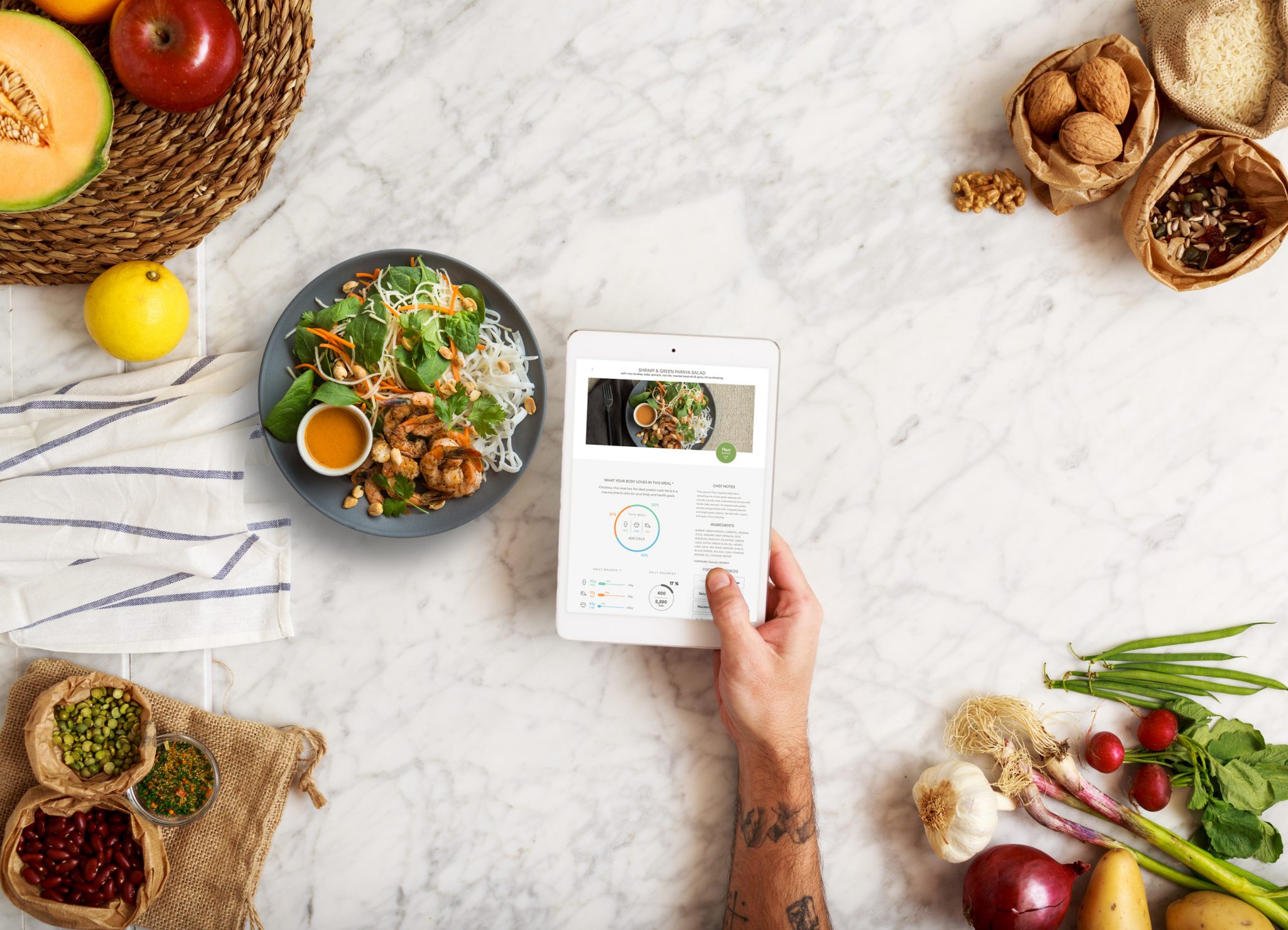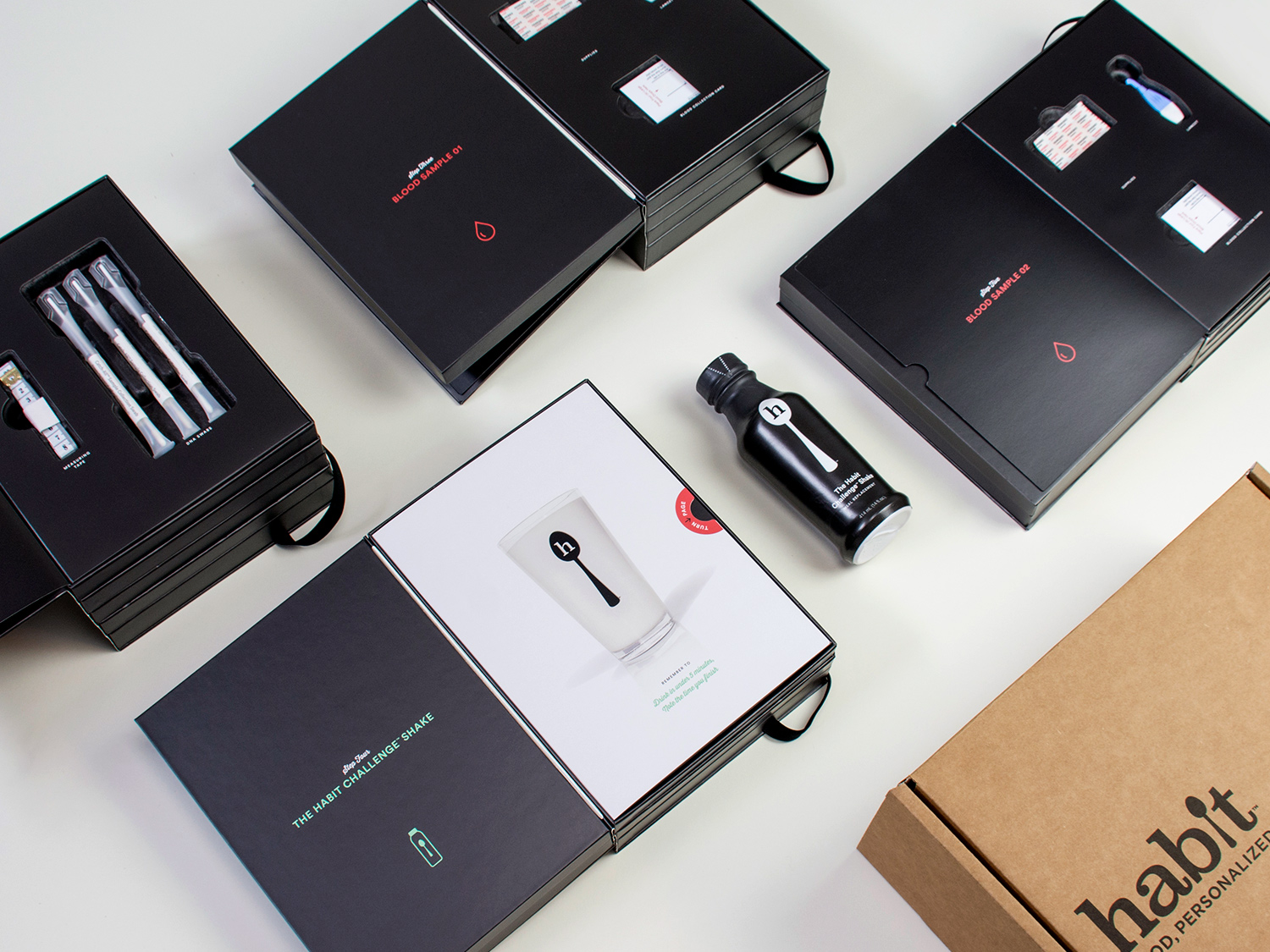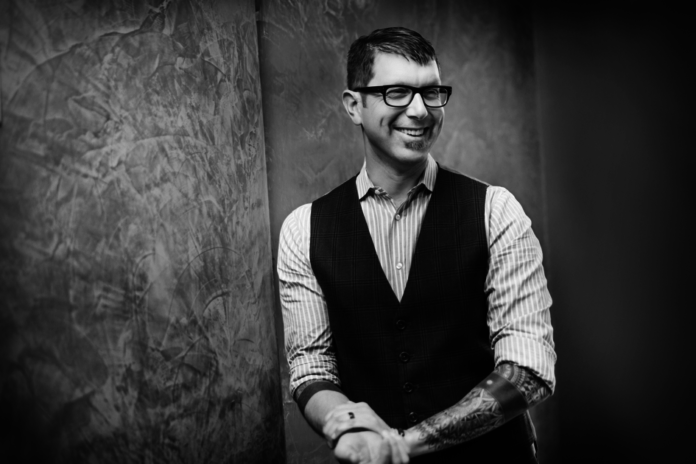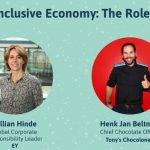First, Neil Grimmer upended the world of baby food. The company he co-founded in 2007, Plum Organics, brought organic, healthy food in pouches to masses of children while simultaneously working to expose millions of disadvantage kids to food experiences that would help them become healthier eaters later in life. After selling the brand to Campbell Soup for $249 million in 2013, Grimmer’s next project is reinventing food for grownups, via his new personalized nutrition business, Habit.
Habit, which Grimmer launched with a $32 investment from Campbell, offers eating plans informed by individual nutrition test data, plus optional coaching and customized meal delivery. “We need to start taking a more nuanced, personal, and — dare I say — intimate look at each individual and what they to thrive,” he explains.
We spoke with Grimmer, a presenter at our upcoming Conscious Company Global Leaders Forum, about why he chose this second act, the connection between health and leadership, and the role of values in business.
Tell us the story of starting your new company, Habit.
Neil Grimmer: After co-founding and running Plum for six years, we sold the company to Campbell Soup. I stayed on because I wanted to make sure that we got through that transition; that’s always a very fragile period. We wanted to make sure that the mission, the values were evergreen. Campbell was very supportive and excited about that, but there was work to be done still. So I stayed on. But my wife in all her infinite wisdom was like, “You’ve taken care of this company for six-plus years. Now you’ve got to start taking care of yourself.”
Prior to starting Plum, I was an Ironman triathlete doing races all over the world — New Zealand, Germany, Florida. I hung up those sneakers to run a different race: running a company. Fast-forward six-plus years, and I was 50 pounds heavier than I was when I was racing. That wasn’t a byproduct of anything other than just not putting the time in to work out, skipping meals and then eating bad meals, drinking too much coffee, all the kinds of things you do when you’re working too much. Grab-and-go convenience food as opposed to real, whole, fresh foods all the time.
I found out I was pre-diabetic, at high risk for a heart attack, and the three cups of coffee I was drinking every day just to get through was increasing that risk by tenfold. It was a huge wakeup call for me. I stepped back and I met with a functional medicine doctor. She said, “Okay, you can fix it with pharma, or you could probably fix it with food if you have the inclination.” And I said, “Well I’d like to fix this with food.”
We talked through a lot of different ideas on how to get that done and how to personalize a nutrition plan. Three months after that, I felt amazing. After six months, I had lost 25 pounds and I had more energy than I’d had in years. I was like, “Wow, this is powerful stuff. This should be available to everyone.” That was the genesis of Habit.

Grimmer’s latest startup, Habit, offers customized meals based on biological testing.
What’s your philosophy on how important it is to have your body-health correct as a leader?
NG: All of us leading companies get overwhelmed by the work, get too much on our plate. Our health and wellbeing maybe takes a backseat to some of the other priorities in the company. It’s a constant challenge to say, “No.” Investing in your health and wellbeing — physically, mentally, emotionally, and even spiritually, for whatever that means to each individual — needs to be up there at the same level as all the other elements, so that you can really be your best in the moment.
It’s an investment leaders tend not to make, but I think it’s one of the most important. The most grounded leaders are the ones who have taken inventory of their lives, and have taken proactive steps to get healthy across all of those different levels. You can see it. You can feel it in their leadership. It becomes plain as day. That’s what I aspire to as a leader.
As I was working up to starting this new company, I actually took the mindset that I was training for a race. Because I know what starting a company takes, and running a company at those early stages is hard. It’s difficult work and it’s all-consuming and it’s long hours. It’s some of the most exciting work I’ve ever experienced, but it also takes its toll.
You really have to train for this, like you would a marathon, like you would an Ironman triathlon. You have to train your mind and your body, and you have to make sure you’re ready for the race you’re about to run.
How do you manage to stay healthy on a day-to-day basis?
NG: Entrepreneurs, they’ve got a lot on their plates, they’ve got a lot on their shoulders. You can’t approach working out, eating healthy like putting another ‘to-do’ on your list that has some guilt associated with it, because that just becomes another burden, along with taking care of your team, your customers, your business, all these things. You have to start making it into daily rituals. You have to recognize that there’s time.
For me, first thing in the morning, 6 am, the first hour is just totally dedicated to my health. It usually consists of a workout followed by some stretching, then a healthy breakfast or a smoothie. When I do that, I feel amazing. I don’t always get to it, but that’s the ritual that I go back to every time. What usually happens is when I set it off right in the beginning of the day, good choices and healthy choices follow.
I encourage people to find that moment in the day just for them. You’ve just got to carve it out and make it a ritual. You’ve got to put the work in every day to be a healthy individual, to be a great conscious leader.
What does “conscious leadership” mean to you? How do you apply it to your everyday life?
NG: The way I’ve always approached it, it’s making a business personal. How do you become a good neighbor, a good friend, a good citizen? Then extrapolate that through an organization. How do you embody the same characteristics you would hold yourself to as an individual?
When we started Plum, it was a small group of parents who had a mission to get the best food to kids from the very first bite. We were coming up with ideas and solutions that would work in our lives, and hopefully in the lives of other people. The same value system we would have about how we want to raise our kids, we applied to the business. There’s something elegant about that approach. When you put your parent hat on, all of a sudden, you’re like, “Oh, I know what doing the right thing looks like.”
Is being parent very akin to being a business leader?
NG: Raising a family and raising a business have a lot of similarities. Both need to be nurtured. It’s centered on love. They’re a byproduct of the everyday practice you put into their care and feeding. My wife and I make sure that a core set of values are present in our kids’ lives: they treat people fairly and they live their life with an understanding of their footprint on the world. The same kinds of ideas start to play out within the business.
What are your personal values, and how do you make sure you live those out intentionally?
NG: Three of them are on the walls of Plum. They are my personal values that are part of the company values as well. The first is: “lead with heart.” In every decision you make, whether it’s a business decision or a personal decision, lead with heart. Have that be the first thing you touch base on.
The second one is: “BYOS,” or “bring your own self.” Nobody wants you to show up as anything other than who you are. Be true to you, be an individual, and celebrate it in all ways and at all times. Not that everyone is always going to love that version of you, but it’s the only version of you, so you better embrace and love it and bring it to everything you do.
The third one is: “fight the good fight.” I believe in being a soldier for good. The work that we do out there, it takes energy, it takes commitment, it takes a perseverance, and it takes a fight to change some of the things, environmentally and in our broader society. It’s showing up with that intent every day.
The last one is esoteric, but it’s something I wrote down a long time ago. The way I characterize it is: “be forever.” Act as though those actions will be with you for the rest of your life, because they will be. So be forever. Be committed. Be all in. It’s like the premise of Seventh Generation: the actions you take in the company will be there for seven generations.

One of Habit’s at-home nutrition test kits
How do you frame all that for your two children, without all of this leadership structure or even business structure around values?
NG: I think it’s simple. “Be good to others.” Not “treat others as you treat yourself” because I don’t know if people necessarily treat themselves well. Be generous. Be kind. Be creative.
Also, “enjoy the ride.” Have fun with your life. It’s the one life you have. Wake up every day inspired to figure out what’s next.
When you think about community, how does that play into your mindset, both in building a company and your own personal life?
NG: Community is essential. We’re social beings. While we have strong individuality, where we thrive is with a connection with others. It’s important as a leader to learn how to cultivate communities around central ideas that bring people together. I look at the teams that we built at both Plum and Habit as a core community.
At Plum, it was young parents who wanted to have their work focused on their kids and all kids in the country. That is a very binding idea for a lot of people, and that built community.
Or in the case of Habit, we’re a personalized nutrition company, so in one sense it’s highly individual. But within the 50 people we have at Habit —crossfit junkies, marathon runners, yogis, foodies — what glues everyone together is we all want to be better versions of ourselves. We want to do the work to unlock our physical, emotional, mental, and spiritual wellbeing. It’s a strong community and now that’s now rippling out to create a strong community of people who are opting into the brand. The same applies to Plum. I think community is everything.
Talk to me, if you can, about a failure that was personal in terms of the suffering it caused. What was that like? What happened and how did you recover from that?
NG: A few months after we sold Plum, my wife was diagnosed with breast cancer. As a family, we went through one of our highest highs to hit one of our lowest lows. It floored me, honestly. She recovered, and it made us tighter. It showed us that above all else, family is absolutely the most important thing, hands down. No company is more important. No nothing.
Looking back, when she was diagnosed, the regret I felt that we hadn’t spent more time together…I write that up as one of my biggest failures recently. There were many nights and days and even, quite frankly, years where Plum was more of a priority in some ways than family. We all were just all-in. Even though it was a family-centered business, I would regularly miss meals.
We’ve changed since then. Because you learn from it. I’m a very driven person, so I’ve always got a project. But I now keep that in check. My family’s the most important thing.
Between getting your own conscious leadership journey correct, building a purpose-driven workplace culture, or being an advocate for good causes in the world, what’s most important?
NG: They’re all interrelated. Part of your personal journey is to think through your core capabilities, your skills, your talents, all these kinds of things. And then the second bit of inventory is: how do you want to use those to change the world for good? It’s as simple as that.
We’re all given unique gifts, and then the question is, how do you take those gifts and how do you make the world a better place through the gifts?
Where do you stand on business’s role in the world and in society? Is it business to the rescue?
NG: We know business is a very powerful force in the world. And if you believe that to be true, take it one step further: business is a very powerful force in the world for good. There are more societal and environmental problems than any one agency has the ability to tackle and change, whether it’s public, private, business, non-profit. We all need to come to the rescue — people, businesses, governments. There is no shortage of issues in the world that need addressing.
What’s your advice for early-stage entrepreneurs trying to make it work, stick it out, persevere?
NG: First off, don’t give up. With Plum, there were many, many hard days, many hard weeks, many hard months, many hard years to get there. If you have perseverance and endurance, you can get through some of that stuff. Stick it out. Fight the good fight. Keep the work going.
Secondly, own the moment. It’s not just enough to stick it out, like, “I’m just hanging on.” You’ve got to lean in. You’ve got to take every opportunity. You’ve got to think about it as an opportunity that makes or breaks your career, makes or breaks the company. Even to this day, I have opportunities and I’m like, “Whoa, it seems really big and I don’t know if I can step up to that.” Step in. Show up and shine.
Anything else you’re planning to say to the leaders you’ll be addressing at the Conscious Company Global Leaders Forum in June?
NG: This is a journey, not an end. There’s not a destination. The idea that any of us have any of this figured out in absolute terms is just false. It’s a set of experiments, it’s a set of actions and rituals and practices to get it right, and it’s life’s journey.
In the pursuit of that journey we can do great things in the world, but it’s important not to get overwhelmed by the idea that you’re not there and other people are. Or lulled into a sense of accomplishment that’s like, “Oh, I’ve got this all figured out now. I don’t have more work to do.” As I get older, I realize more and more work that I need to do on all kinds of fronts. Because I’m more aware. It’s that process you’ve got to tap into.





